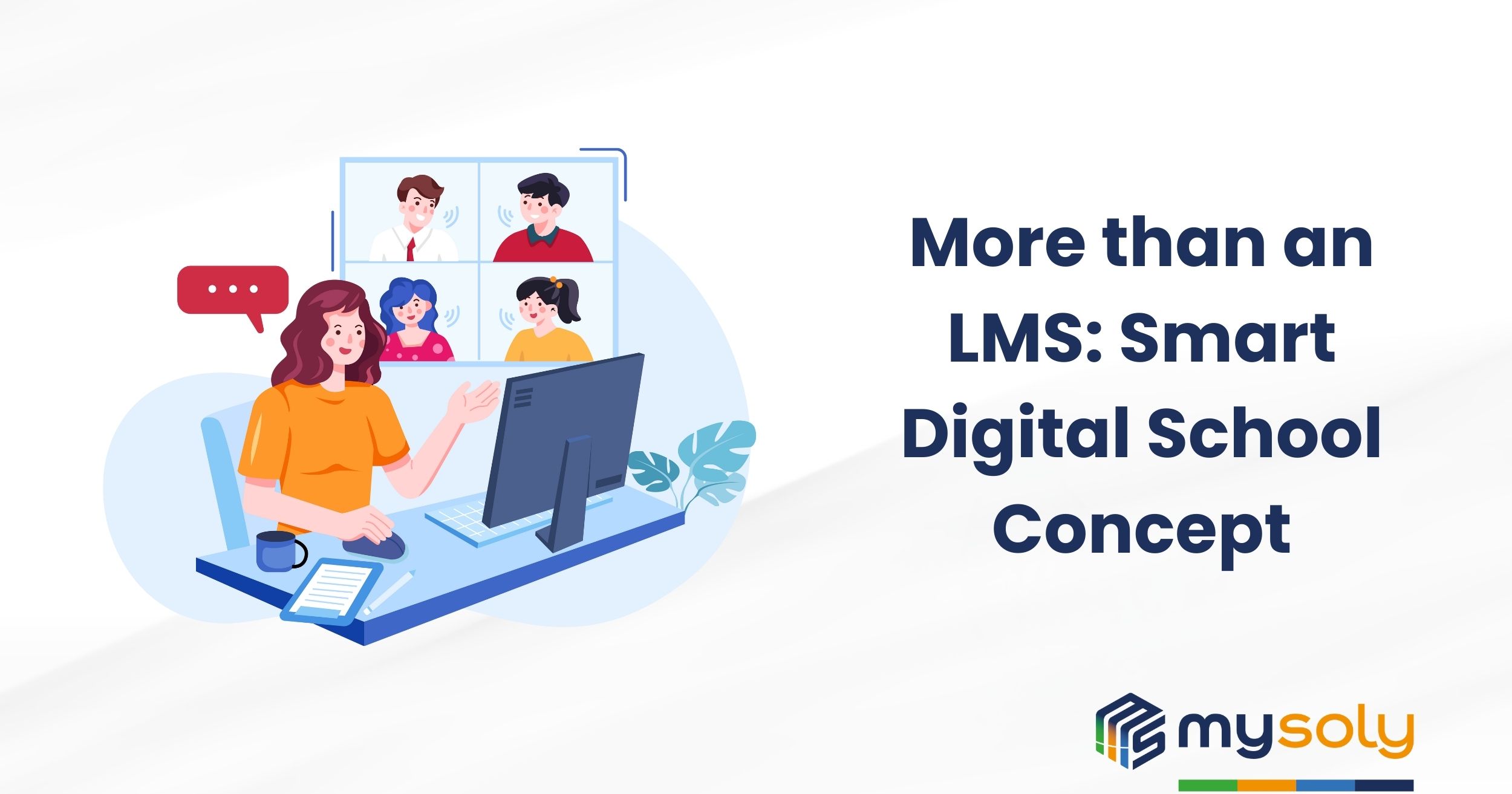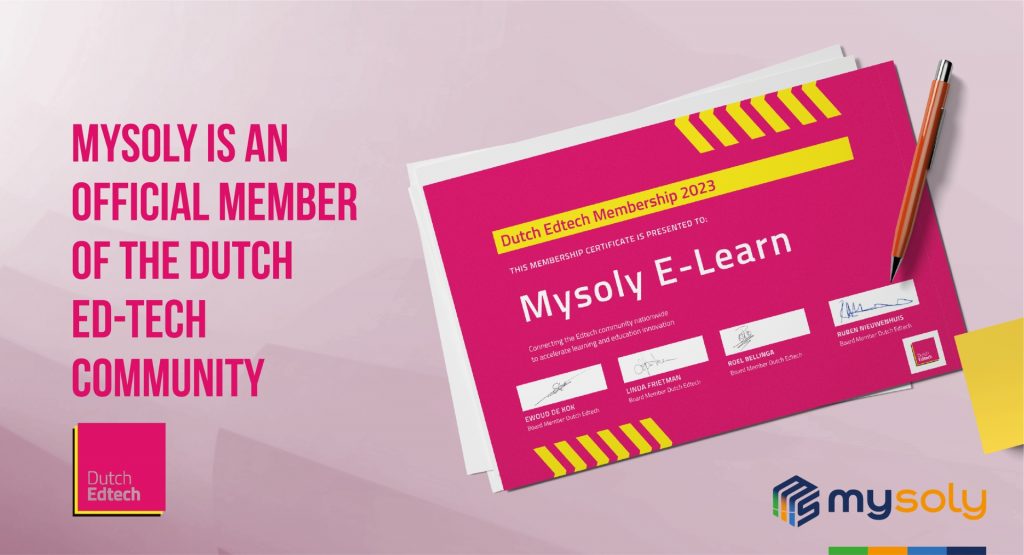More than an LMS: Smart Digital School Concept
Learning management systems (LMS) are becoming essential tools for organizations. They help deliver and track online training programs effectively. But today’s needs go beyond traditional LMS features. This is where Mysoly’s smart digital school concept comes in. It offers a comprehensive, all-in-one solution for modern learning needs. What about exploring why your organization needs an LMS and what features you should prioritize?
Why choose an LMS?
Before investing in an LMS, you must ask: “Why does my organization need one?” The answer should align with your training goals and organizational strategy. While a basic LMS helps deploy eLearning, our AI-based multilingual LMS solutions provide much more. Our smart digital school concept ensures an engaging, efficient, and personalized learning experience for learners and administrators alike.
What should you look for in an LMS?
Selecting the right Learning Management System (LMS) is crucial for effective training and education. Beyond basic functionalities, a robust LMS should address diverse needs while promoting engagement and efficiency. Here’s what you should prioritize when choosing an LMS:
1. Custom branding and personalization
Your LMS should reflect your organization’s identity. It should allow customization of logos, colors, and design. This creates a seamless integration with your brand, fostering trust and familiarity among learners. Also, an LMS that feels like an extension of your organization enhances the learning experience.
2. Smart administration tools
On the other hand, effective administration is the backbone of any LMS. So, these features help you automate your administrative tasks:
- Smart reporting: Provides detailed insights into learner progress.
- Monitoring tools: Allows administrators to track individual and group performance.
- Custom subdomains: Enables access through your unique domain.
- SMTP setup: Ensures seamless communication via your organization’s email. These tools streamline management, saving time and effort for administrators.
3. Advanced virtual classrooms
Interactive learning is key to engagement. For an effective learning environment, your LMS should support:
- Unlimited virtual classes: Facilitate real-time sessions for any group size.
- Collaborative whiteboards: Encourage creativity and teamwork.
- Integrated communication tools: Make sessions more dynamic and interactive. These features elevate the virtual classroom experience, making it more than an LMS—a platform for collaboration and innovation.
4. AI-powered content development
AI capabilities revolutionize course creation. Choose an LMS that offers:
- Lesson generation: Quickly develop high-quality lessons using AI.
- Quiz creation: Automatically generate assessments from course materials.
- Multilingual content: Create audio lessons in multiple languages with ease.
Integrating your LMS with AI saves time while ensuring diverse and inclusive learning content.
5. Multilingual capabilities
In addition, inclusivity is vital in a globalized world. Therefore, a robust LMS should:
- Support multilingual lessons and discussion boards.
- Allow learners from diverse backgrounds to participate without language barriers.
As a result, this feature significantly expands your reach, making education truly accessible to all.
6. Comprehensive student management
Efficiently managing learners is essential for every training process. Look for features such as:
- Student import/export: Simplifies onboarding and data management.
- Performance dashboards: Let learners track their progress independently.
- Automated notifications: Keep students informed about updates and deadlines.
In turn, these capabilities enhance both administrative efficiency and the learner experience.
7. Engagement and collaboration tools
Active participation drives better outcomes. Your LMS should include:
- Discussion boards: Facilitate group chats and brainstorming sessions.
- File sharing: Enable seamless sharing of resources among learners.
- Virtual events: Organize webinars, seminars, and group activities. These tools make learning interactive and foster a sense of community.
8. Certification and recognition
Moreover, acknowledging achievements motivates learners. So, an ideal LMS should:
- Allow customization of certificates.
- Provide automated certification upon course completion.
- Enable organizations to highlight accomplishments. This recognition encourages continuous learning and builds learner confidence.
Beyond traditional LMS features
While traditional LMS platforms focus on content delivery, a modern LMS integrates multiple functionalities. For example:
- Unlimited storage for media and lesson design.
- AI tools for creating multilingual audio lessons.
- Real-time support through help centers.
These features redefine what an LMS can do. They transform it into a hub for all digital learning needs.
Organizations of all sizes and industries need an LMS. Educational institutions, businesses, and government agencies can use it to meet diverse training needs. Whether you need to train employees, onboard new hires, or educate communities, an LMS is adaptable and scalable.
How Mysoly’s solutions stand out
At Mysoly, we believe in offering more than an LMS. Our LMS solutions are smart digital schools that provide a unified, all-in-one solution. With customizable features, AI-powered tools, and multilingual support, we ensure learning is accessible and effective for everyone. Also, our LMS solutions help organizations save time, reduce costs, and achieve better outcomes.
Conclusion
In today’s world, you need more than an LMS to meet your training goals. Our smart digital school concept offers an all-in-one solution, simplifying administration, improving engagement, and personalizing learning. Therefore, your organization stays ahead in delivering impactful education. Ready to transform your learning experience? Contact Mysoly today!



